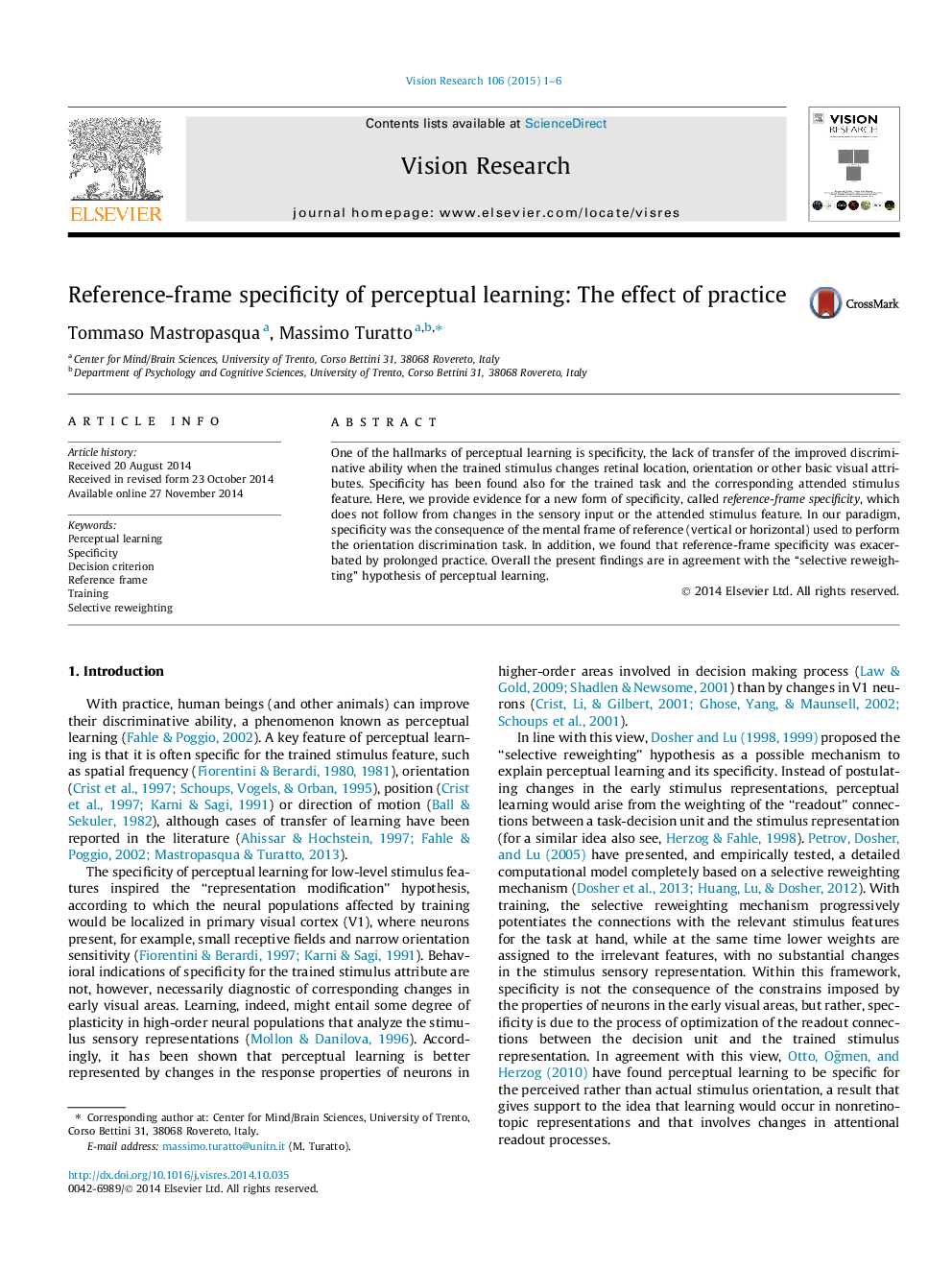| Article ID | Journal | Published Year | Pages | File Type |
|---|---|---|---|---|
| 4033678 | Vision Research | 2015 | 6 Pages |
•A new perceptual-learning specificity is reported, called reference-frame specificity.•This specificity followed only from the mental axis of reference adopted.•Reference-frame specificity increased as a function of the amount of practice.•Results agree with the selective-reweighting hypothesis of perceptual learning.
One of the hallmarks of perceptual learning is specificity, the lack of transfer of the improved discriminative ability when the trained stimulus changes retinal location, orientation or other basic visual attributes. Specificity has been found also for the trained task and the corresponding attended stimulus feature. Here, we provide evidence for a new form of specificity, called reference-frame specificity, which does not follow from changes in the sensory input or the attended stimulus feature. In our paradigm, specificity was the consequence of the mental frame of reference (vertical or horizontal) used to perform the orientation discrimination task. In addition, we found that reference-frame specificity was exacerbated by prolonged practice. Overall the present findings are in agreement with the “selective reweighting” hypothesis of perceptual learning.
